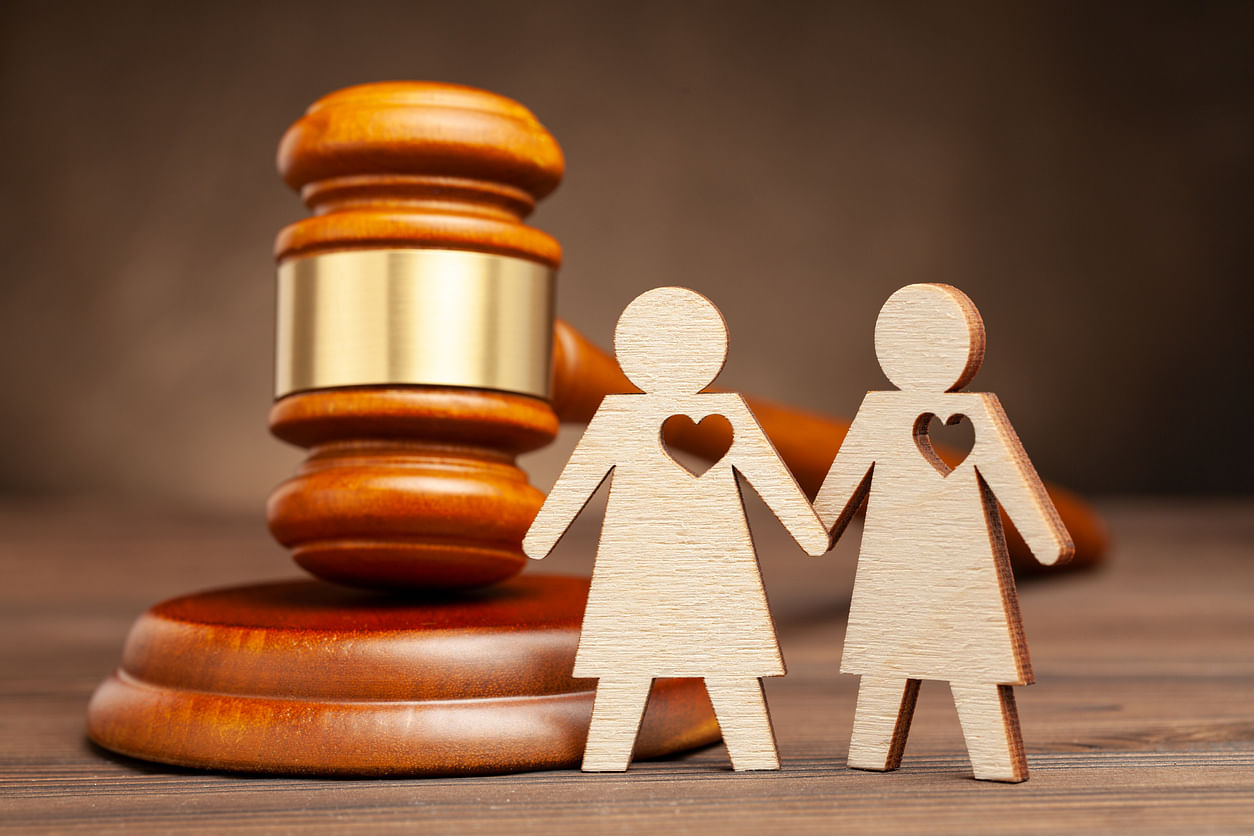
The Union government has opposed before the Delhi High Court a plea for registration of marriage between a same-sex couple, saying no fundamental right can be claimed for it as "marriage" is essentially a socially recognised union of two individuals, governed either by personal laws or codified statutory laws.
In a 50-page affidavit, the Centre said in view of larger statutory framework, there existed a legitimate state interest in limiting the legal recognition of marriage to persons of opposite sexes only.
"By and large the institution of marriage has a sanctity attached to it and in major parts of the country, it is regarded as a sacrament. In our country, despite statutory recognition of the relationship of marriage between a biological man and a biological woman, marriage necessarily depends upon age-old customs, rituals, practices, cultural ethos and societal values,” it said.
The government further said living together as partners and having a sexual relationship by same-sex individuals (which is decriminalised now) is not comparable with the Indian family unit concept of a husband (man), a wife (woman) and children.
It maintained that any interference in the matter would cause complete havoc with the delicate balance of personal laws in the country.
Responding to a PIL by activist Abhijit Iyer Mitra and others, the Centre said the acceptance of the institution of marriage between two individuals of the same-gender is neither recognised nor accepted in any uncodified personal laws or statutory laws. It said the petitioners sought to re-write the legislative text and intent governing marriage and other ancillary issues.
It also said whether a relationship be formalised by way of a legal recognition of marriage is essentially a question to be decided by the legislature and can never be a subject matter of judicial adjudication. Actually, it is for the legislature to judge and enforce societal morality and public acceptance based upon Indian ethos.
Also Read | Gender-biased rape laws must change
The government said marriage between a biological man and a woman takes place either under the personal laws or codified laws namely, the Hindu Marriage Act, 1955, the Christian Marriage Act, 1872, the Parsi Marriage and Divorce Act, 1936 or the Special Marriage Act, 1954 or the Foreign Marriage Act, 1969.
Further, the parties entering into marriage creates a social institution having its own public significance from which several rights and liabilities flow.
"Family issues are far beyond mere recognition and registration of marriage between persons belonging to the same-gender," it pointed out.
Maintaining that western decisions sans any basis in Indian constitutional law jurisprudence, cannot be imported in this context, the government said marriage as a union between a "man" and a "woman" is intrinsically linked to the heterogeneous institution of marriage and acceptance by the Indian society based upon its own cultural and societal values recognised by the competent legislature.
Asserting that the principles of legitimate state interest as an exception to life and liberty under Article 21 would apply to the present case, the government said observations of the Supreme Court in Puttaswamy case (right to privacy) and Navtej Singh Johar (decriminalisation of Section 377 IPC) may not be treated as conferring a fundamental right of being recognised in a marriage under laws.
